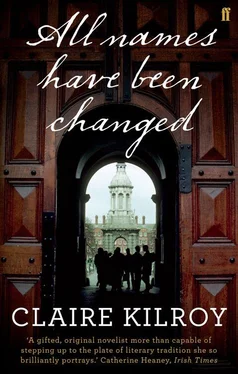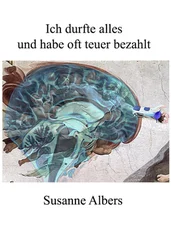Claire Kilroy - All Names Have Been Changed
Здесь есть возможность читать онлайн «Claire Kilroy - All Names Have Been Changed» весь текст электронной книги совершенно бесплатно (целиком полную версию без сокращений). В некоторых случаях можно слушать аудио, скачать через торрент в формате fb2 и присутствует краткое содержание. Год выпуска: 2010, Издательство: Faber & Faber, Жанр: Современная проза, на английском языке. Описание произведения, (предисловие) а так же отзывы посетителей доступны на портале библиотеки ЛибКат.
- Название:All Names Have Been Changed
- Автор:
- Издательство:Faber & Faber
- Жанр:
- Год:2010
- ISBN:нет данных
- Рейтинг книги:5 / 5. Голосов: 1
-
Избранное:Добавить в избранное
- Отзывы:
-
Ваша оценка:
- 100
- 1
- 2
- 3
- 4
- 5
All Names Have Been Changed: краткое содержание, описание и аннотация
Предлагаем к чтению аннотацию, описание, краткое содержание или предисловие (зависит от того, что написал сам автор книги «All Names Have Been Changed»). Если вы не нашли необходимую информацию о книге — напишите в комментариях, мы постараемся отыскать её.
All Names Have Been Changed — читать онлайн бесплатно полную книгу (весь текст) целиком
Ниже представлен текст книги, разбитый по страницам. Система сохранения места последней прочитанной страницы, позволяет с удобством читать онлайн бесплатно книгу «All Names Have Been Changed», без необходимости каждый раз заново искать на чём Вы остановились. Поставьте закладку, и сможете в любой момент перейти на страницу, на которой закончили чтение.
Интервал:
Закладка:
Glynn proposed the theory that same evening that future generations would evolve the imagination out of their genetic make-up altogether. It would come to be regarded as freakish as an atavistic limb — people would pay an admission charge to squirm at its workings. He lambasted the pre-eminence accorded the so-called ‘real world’. No parent would encourage their child to become an artist in the real world. Money didn’t grow on trees in the real world. But what were we without our sense of wonder? he asked the audience. Take the childlike imagination away, and what was left? What was the point? Why should we bother? Did anyone know? Anyone at all? His questions were met with silence.
The theories propounded by the great man that night provide insight into his refusal to grow up. ‘I don’t want to be an old man,’ he had complained midway through his bender the previous week, speaking as if this fate was peculiar to him alone. It’s quite possible his staggering solipsism allowed him to believe it was. It can be appreciated how an artist might feel constricted by the quotidian world with its emphasis on pounds and pence. ‘Banal’ is a word they reach for often, and never with reference to themselves, employing it instead as shorthand for the rest of the world. Western society had been infected by what Glynn called ‘blandular fever’. It was the artist’s duty to swim against that current, he informed us during a workshop. Was he talking about us though, or yet again about himself, when he used that loaded term ‘artist’? We never knew where we stood.
What cannot be as readily appreciated is the artists’ persistence in perceiving themselves as alone in their persecution by the quotidian. This is a monumental failure of the imagination on their part. Spouses and children, specifically, could not possibly comprehend their predicament. Spouses and children, they appear to think, do not suffer like they suffer. No one, they think, suffers like an artist suffers. They believe themselves not made for this world, but worse than that: they believe that others are. The question is, why do they marry, why do they procreate, why do they inflict themselves on the human beings around them if they harbour such low opinions of them? Making certain that someone’s around to take care of them? Securing a captive audience?
A young woman was making a terrible scene in the middle of Front Square, oblivious to the looks she was attracting. She’d have drawn curious glances even had she kept her counsel, so out of place did she look on the college grounds — an ungainly figure dressed in ungainly clothes, like something got from the nuns. Her floral skirt kept inflating in the breeze, revealing solid, mottled legs. A sudden gust blew the hem up as far as her thighs.
So visibly distressed was the young woman by then that she didn’t appear to notice the exposure. Glynn did though. He noticed the girl’s thighs, and he noticed those around him noticing, his colleagues and students, the odd tourist. He couldn’t screen the girl from their prying eyes, although you could tell he dearly wanted to. Nothing he said or did placated her. She didn’t seem to hear him.
‘Do you think she’s maybe deaf?’ Faye asked.
Antonia shook her head. ‘No, she isn’t deaf.’
Glynn gestured towards Front Arch and made to place a guiding hand on the woman’s shoulder, seeking to escort her off the premises. The woman shied as if she thought he was about to hit her. ‘Oh no,’ Aisling whispered, chewing at her cuticles, peeling them off in strips with her teeth. A fazed Glynn retracted his hand. That was a first: Glynn looking embarrassed. We didn’t think him capable. Odd, that he didn’t storm off, his standard cop-out. What hold did this person have on him?
The woman’s skirt blew up to her thighs again, and again she failed to notice. Her white nurses’ shoes were yellowing at the soles like geriatric feet. Ankle socks, at her age, white cotton ankle socks folded over at the hem — the woman had strayed out of her depth with Glynn. She was too young for him, apart from anything else, far too young and gauche. The five of us watched closely from the workshop window. What had he gone and brought upon himself now?
Glynn’s voice, though raised, unfortunately wasn’t raised enough to make out what he was telling the girl, even after we’d opened both windows. He had the courtesy to look sheepish, I’ll give him that. I would go so far as to say guilty. Good enough for him. Served him right. Might put manners on him in future.
‘She’s not exactly his type, is she?’ I observed.
Antonia turned from the window to regard me with withering disgust. Truly, she outdid herself. ‘You are obscene,’ she said. That isn’t his lover. That’s his daughter.’ She returned her attention to the sparring pair below. ‘Bet she’s the one sending the poison-pen letters.’
I looked down at the woman in the quad again, at her flowery dress, her fleshy knees, her permed hair, her sloppy dismay. She was crying now, big blotchy tears that didn’t hold a candle to Guinevere’s. She wiped her nose with the back of her hand and Glynn produced a rancid hanky, which she declined. This was Sofia? This was Cassandra? No, I remember thinking. Not possible. She departed too radically from the image held aloft in my mind. Glynn had written about her with bewildered tenderness in The Common-place Book She was his strange fairy child, his troubled sprite, and I was half in love with her.
Glynn cupped his daughter’s shoulders. She submitted to being held in this manner, if not quite embraced — he tried to draw her to him but she cowered and he immediately desisted, knowing better for once in his life than to push his luck. She was almost as broad as him, the poor graceless girl. Those ridiculous, matronly, ill-fitting clothes. Where had she gotten them? Not from her mother, that was for sure. Gladys was a striking, statuesque New Yorker who wore her silver hair in an angular bob, hardly the drudge we made her out to be. We demonised her to suit our purpose, which was to lionise Glynn. We required a figure of grand proportions in whom to invest our faith and therefore glorified Glynn as a tragic hero, or tragic anti-hero at least.
The breeze plastered Sofia’s hair across her face. It stuck to her tears and snot. She permitted her father to disentangle it, and he carefully tucked it behind her ears. The wind whipped it straight back into her eyes again, and she lowered her head in defeat. How had Glynn engendered this shambling, big-boned creature? Nothing by his hand was this crude, this unworked. She was his only child.
The four women were hungry to construct a narrative, a family saga, out of every tiny gesture Glynn and his slovenly daughter exchanged. Their attention was almost predatory. It was a wonder the intensity of their combined gaze didn’t set the Glynns on fire. I, on the other hand, no longer wanted to know. It was a shattering disappointment that Glynn’s offspring wasn’t the match of him. Such a disappointment, in fact, that I felt cheated. My overriding need to believe in some transcendent essence had been dealt another blow. There was no unquenchable spark of brilliance. It had petered out by the time it reached Sofia. She resembled her father only in stubbornness.
A strange thing started happening then: my disillusionment with Sofia began to infect my high opinion of Glynn, dismantling him before my eyes like a degenerative virus. Had his unquenchable spark of brilliance petered out by the time it reached Sofia, or had it petered out also in the man himself? Was it possible that Glynn was now every bit as ordinary as his daughter? Had we been hasty in our appraisal? He hadn’t written in so long. He hadn’t written in years.
Sofia’s shoulders sagged in capitulation as she conceded Glynn a little suppose-so nod. The fight had gone out of her by then. Conflict was not her natural disposition. She didn’t take after her father in that regard either. Glynn still held her upper arms and was speaking entreatingly to her slumped form. He wished she’d stand up straight for once in her life and kept rolling her shoulders back to try to straighten her frame, but she just slouched forward again. Twice he gently shook her, trying to rouse her, to no avail. Sofia kept her eyes on the cobbles.
Читать дальшеИнтервал:
Закладка:
Похожие книги на «All Names Have Been Changed»
Представляем Вашему вниманию похожие книги на «All Names Have Been Changed» списком для выбора. Мы отобрали схожую по названию и смыслу литературу в надежде предоставить читателям больше вариантов отыскать новые, интересные, ещё непрочитанные произведения.
Обсуждение, отзывы о книге «All Names Have Been Changed» и просто собственные мнения читателей. Оставьте ваши комментарии, напишите, что Вы думаете о произведении, его смысле или главных героях. Укажите что конкретно понравилось, а что нет, и почему Вы так считаете.












